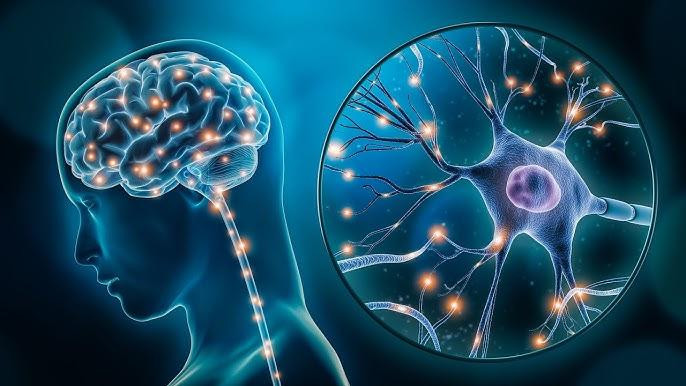Migraines are more than just a headache — they’re a debilitating condition that affects millions of people each year. According to the National Institutes of Health, about 95% of Americans experience some form of migraine over a three-month period. Characterized by severe, pulsating pain, along with symptoms like nausea, and sensitivity to light and sound, migraines can disrupt daily life to the point of incapacity. For many sufferers, conventional treatments like prescription medications, painkillers, and even opioids don't always provide relief. This has led many to explore alternative treatments, and one that has gained increasing attention is medical cannabis.
But the big question remains: Can cannabis truly help manage migraine pain, or is it just a placebo? In this article, we’ll take a closer look at the potential role of cannabis in migraine treatment, explore the scientific evidence, and discuss the growing interest in marijuana and its active compounds like THC and CBD.
Understanding Migraine Symptoms and the Role of Cannabis
If you’re someone who suffers from migraines, you’re all too familiar with the intensity of the pain. Migraine attacks can be so severe that they render you unable to function normally, impacting your ability to work, socialize, or even rest. Along with the throbbing pain, you may experience symptoms like nausea, sensitivity to light, and heightened sensitivity to sound.
In recent years, medical cannabis — derived from the cannabis sativa plant — has piqued the interest of some migraine sufferers. With its active compounds, THC (tetrahydrocannabinol) and CBD (cannabidiol), cannabis has become increasingly popular as a potential remedy for various health issues, including chronic pain. However, the question remains: Can it really help relieve migraine pain, or is it just another unproven trend?
How Cannabis Interacts with Neurotransmitters
One of the reasons cannabis is thought to hold promise for migraine relief lies in how its compounds interact with our body. THC and CBD work by binding to cannabinoid receptors in the central nervous system through the endocannabinoid system. This system is involved in regulating several bodily functions, including pain sensation, mood, and inflammation.
There’s some evidence suggesting that these cannabinoids may influence the release of neurotransmitters that are involved in pain processing. For instance, calcitonin gene-related peptide (CGRP), which has been linked to the onset of migraines, could potentially be modulated by cannabinoids. However, more research is needed to fully understand how cannabis affects these pathways and whether it can effectively reduce the frequency and severity of migraines.
The Current State of Research
Despite the buzz around cannabis as a potential migraine treatment, the scientific evidence remains somewhat mixed. While some small-scale studies and anecdotal reports suggest that cannabis may offer relief for some migraine sufferers, the findings are not conclusive. This lack of robust evidence makes it difficult for healthcare professionals to recommend medical marijuana as a first-line treatment for migraines.
Moreover, while the FDA has approved cannabis-derived medications for other conditions — such as Epidiolex for seizures and Marinol for chemotherapy-induced nausea — no cannabis-based drugs have been specifically approved for migraines. This highlights the ongoing need for more clinical trials to explore the true effectiveness of cannabis in treating migraines.
Potential Benefits and Risks
So, what do we know about cannabis and its role in migraine management? For some patients, using marijuana — whether in the form of smoking, vaping, CBD oils, or gummies — may provide symptom relief. CBD products, which are derived from hemp and contain minimal amounts of THC, have become particularly popular due to their anti-inflammatory and pain-relieving properties.
However, it’s important to note that the effectiveness of cannabis for migraine relief can vary widely among individuals. Factors like the formulation, dosage, and delivery method (e.g., inhalation, oral consumption) play a role in determining how effective it may be. Additionally, the stigma surrounding marijuana use and its classification as a Schedule I controlled substance can create barriers for some patients looking to explore cannabis as a treatment option.
The Role of Social Media and Patient Reports
A growing number of migraine sufferers are turning to social media platforms like Reddit and Quora for firsthand experiences from other patients who have tried cannabis for relief. While these anecdotal reports may provide some insight, they should be taken with caution. The subjective nature of these personal experiences makes it difficult to draw definitive conclusions about the effectiveness of cannabis for migraine management.
The Future of Cannabis and Migraine Research
There is no denying that medical cannabis holds potential for a range of health conditions, including migraines. However, the need for more rigorous clinical studies and large-scale trials is crucial to fully understand how it can help migraine sufferers. In particular, research should focus on the mechanisms of action behind cannabis’s effects on headache disorders, as well as the impact of different delivery methods, such as vaporization or topicals.
For those interested in experimenting with cannabis for migraine relief, it’s important to work closely with a healthcare provider. This will help ensure that any cannabis-based products are used safely and appropriately.
Conclusion: Is Cannabis the Key to Migraine Relief?
The relationship between cannabis and migraine relief remains complex. While some patients report significant benefits from using cannabis, the scientific evidence is still not definitive enough to make broad recommendations. Cannabis may be a promising alternative for those who have not found success with traditional treatments, but it’s important to approach it with a critical, informed mindset. The placebo effect is also a possibility, and what works for one person may not work for another.
As cannabis research continues to evolve, patients should stay informed, consult their healthcare providers, and make decisions based on the latest evidence and their own personal experiences.
For those interested in cannabis products, visit geticglass.com, a trusted source for a variety of wellness-focused products. With the growing popularity of these products, there's hope that more clinical trials and scientific studies will help us unlock the full potential of cannabis in migraine management.



